- From Faith Current: “The Sacred Ordinary: St. Peter’s Church Hall” - May 1, 2023
- A brief (?) hiatus - April 22, 2023
- Something Happened - March 6, 2023
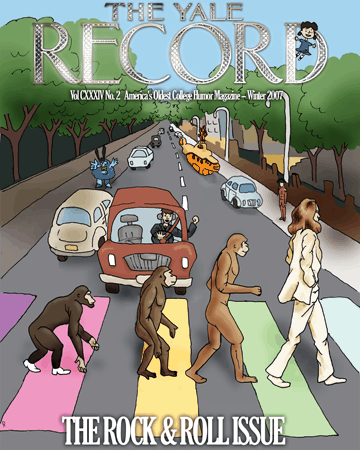
Yes, this is Mike’s old college humor magazine
I‘m still collecting my thoughts about The Fest for Beatles Fans, but in the meantime wanted to pass along this hilarious quote from our own John Lennon. I was editing a humor piece for a friend of mine, and went to Wikiquote to confirm that Lennon did in fact say, “There are no problems, only solutions.” (In the piece, I attributed it to Vince Lombardi — a little Easter Egg joke for Beatlepeople.) Along the way I found this priceless snippet of John Lennon on evolution:
Nor do I think we came from monkeys, by the way… That’s another piece of garbage. What the hell’s it based on? We couldn’t’ve come from anything–fish, maybe, but not monkeys. I don’t believe in the evolution of fish to monkeys to men. Why aren’t monkeys changing into men now? It’s absolute garbage. It’s absolutely irrational garbage, as mad as the ones who believe the world was made only four thousand years ago, the fundamentalists. That and the monkey thing are both as insane as the apes standing up suddenly. The early men are always drawn like apes, right? Because that fits in the theory we have been living with since Darwin. I don’t buy that monkey business. [Singing] “Too much monkey business…” [Laughing] I don’t buy it. I’ve got no basis for it and no theory to offer, I just don’t buy it. Something other than that. Something simpler. I don’t buy anything other than “It always was and ever shall be.” I can’t conceive of anything less or more. The other theories change all the time. They set up these idols and then they knock them down. It keeps all the old professors happy in the university. It gives them something to do. I don’t know if there’s any harm in it except they ram it down everybody’s throat. Everything they told me as a kid has already been disproved by the same type of “experts” who made them up in the first place. There.
This was edited out of the Playboy interview done with David Sheff in September 1980 (published December 1980). It was included in the book-length transcript, “All We Are Saying,” published by St. Martin’s in 2000. Here’s an interesting article on Scheff and Lennon, done by NPR in 2010.
Here’s where I usually attempt to open up John Lennon’s head and get inside, but instead today I’ll just say this: one of the things obscured by the world’s grief over John Lennon’s murder was how strange a guy he was. At places like The Fest for Beatles Fans, there’s an almost palpable sadness over the long, contented life we imagine John lost — but the future we fans imagine for him has everything to do with us, and little to do with him. Lennon’s was not a white-picket-fence life, or mind, and his murder spared us watching him (for example) give $10 million to prove the existence of a face on Mars. “Look, Yoko’s been saying that for 20 years, but because she’s a woman, nobody listened to her. Now this NASA guy says it, everybody’s all the sudden, ‘Oh, face on Mars, face on Mars.’ I’m glad everybody’s finally coming around. The picture is there, it’s indisputable. And those are only the ones they’re letting us see!… So the album has a double point: one, to wake everybody up to the reality that some of us have been living for years, and two, to give Yoko her rightful credit.”
Losing John Lennon when we did, in the way we did, allows us to imagine whatever future he would’ve liked if he were us. But if he had lived, it strikes me just as likely that he would’ve gotten into Scientology or championed the anti-vaxxer movement or turned up dead at Burning Man under mysterious circumstances, as the more benign cuddling-with-Yoko-in-Ireland futures we usually imagine. John Lennon was not likely to become the world’s gentle countercultural grandpa. He would’ve gotten into plenty of trouble, done plenty of stupid things, and been just as divisive at 70 as he had been at 30. He would’ve followed the rest of the counterculture into the wilderness, and probably come out much like Paul, George, and Ringo did — an eccentric billionaire with a fundamentally unknown personal existence, and a penchant for flashing the peace sign.
It’s cold comfort indeed, but Lennon’s death at 40 allows Lennon fans to delude themselves about who he really seems to have been — not just (as a friend of mine recently put it) “a thoughtful seeker,” but an irritant, a holy fool, and instinctual provocateur. A man who didn’t give a damn what people thought, for better (which we remember) and worse (which we too often don’t).


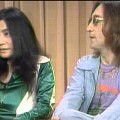

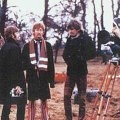
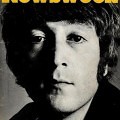
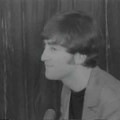


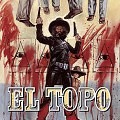
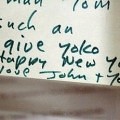


I agree with John. I think the situation with evolution is akin to that of physics. Newtonian physics looked good: it made sense. Then came Einstein and Quantum Physics and we saw that something the conventional mind finds harder to grasp underlies the Newtonian world. The Newtonian world wasn’t so much proved wrong as shown to operate only at a certain level–or as a kind of rough approximation of reality. In the same way, I think something richer underlies evolution. What I admire about John, which this quote illustrates, is how much a creature of the gut he was. As you say, he didn’t care if what his gut told him was at odds with, well… anything! He wrote songs instinctually, intuitively–his best ones anyway. He was in touch with that underlying reality, which is far richer than science can say. “There are more things in heaven and earth, Horatio/ Than are dreamt of in your philosophy.”
Interesting, @Chris. While I bow before no man in my willingness to accept the strange and unexpected — based on the fact that every generation ever throughout History thinks they’ve figured it all out, and none of them have yet! — in John’s response I hear a knee-jerk dismissal of authority, which strikes me as simply the obverse of the more usual knee-jerk acceptance. It’s the reflexive quality that gives pause. I also hear a kind of ego in it — a sense that the world had to prove itself to him — which I think caused him tons of problems as an adult. To say to someone in authority, “You’re just guessing,” is a good thing. They are just guessing, whether they admit it or not. But to say “You’re just guessing, which means the only person who can ever help me is myself and my wife,” is an incredibly isolating belief, and an unnecessary one, too. In his case, it certainly contributed to his not having personal protection; a bodyguard was a reminder that he was vulnerable, and that he needed to rely on someone other than Yoko. This was intolerable to him, for the same reason he didn’t want to rely on biologists to tell him how the world worked.
He was a very peculiar man, by turns utterly cynical and utterly credulous. But you’re so right: he was in touch with “that underlying reality,” and we’re all so much the richer for it.
You’re right. But perhaps more fundamentally, underneath these undeniable personal “issues,” Lennon was, like other great spirits, a creator of worlds and not an acceptor of them. His songs created worlds—Strawberry Fields, Imagine—and the same urge flowed into his brand of activism. Part of forging new worlds is being a provocateur, which he also was. He liked that in Yoko and then provoked the other Beatles by bringing her into the studio. Perhaps his last act of provocative world-creating was to die early, leaving us to create our own idea-worlds of what he would have become.
Perhaps so, @Chris, but I always get somewhat uncomfortable when Lennon becomes that conceptual.
Lennon was a born troll. I’d love to be able to follow him on Twitter.
Oh hell yes, @Stew.
And @Chris, I’m not uncomfortable with any of Lennon’s stances. His (and Yoko’s) provocations only really outraged the Aunt Mimis of the world. Anyway, it’s important not to take any single stance too seriously, because he switched constantly and expressed each one with total conviction, until the moment he decided to believe the opposite).
I’m uncomfortable when Beatle/Lennon fans start talking as if he had a philosophy — as if he were a guru. He surely wanted to be thought of in this way, but simply didn’t have the discipline. Lennon’s approach to these issues is a great example of “spiritual materialism,” which I don’t think is wise or helpful, though it is terribly common. (Even in myself!)
In this spiritual materialism, Lennon was, as ever, the perfect spokesman for his era. But the other side of the “Lennon as guru” coin is “Lennon as hypocrite,” and I think both readings obscure the most useful thing, which is the extraordinary (and ordinary) human being.
@Michael, I agree. Saying he liked to create and provoke isn’t to say he had any system or was right or should be a guru. He was highly undisciplined–he just let it flow. Nothing more, nothing less. That’s what made him one-of-a-kind, John Lennon, warts and all (and penis too for good measure). He went off on binges of all kinds–emotional, pharmaceutical, and political. But I don’t get the impression, based on what I’ve seen or read, that Lennon wanted to be anyone’s guru. I think he wanted to promote causes he believed in–for however many nanoseconds–and knew he had a pulpit to speak from. But I don’t get the impression he saw himself as a role-model or that anyone should look to him as he may have once briefly looked to the Maharishi. I’m also not sure Lennon was a “spiritual materialist” really. I think the guy was sincere and had a lot of money and did what he felt like–all the while being an extraordinary and ordinary human being.
Same here, @Michael. He was good at making people uncomfortable 😉
of course he said there are no problems only solutions.it’s in one of his songs.sheesh.why do you need to say he said it like it’s in question?
@Ron, because I wanted to be sure it was original to him, and he wasn’t quoting somebody. Lennon read voraciously and was a bit of a magpie in that way.
An interesting piece in the Atlantic “The Technical Constraints That Made Abbey Road So Good.”
.
http://www.theatlantic.com/technology/archive/2014/10/the-technical-constraints-that-made-abbey-road-so-good/381820/